Bachelor en Cinéma
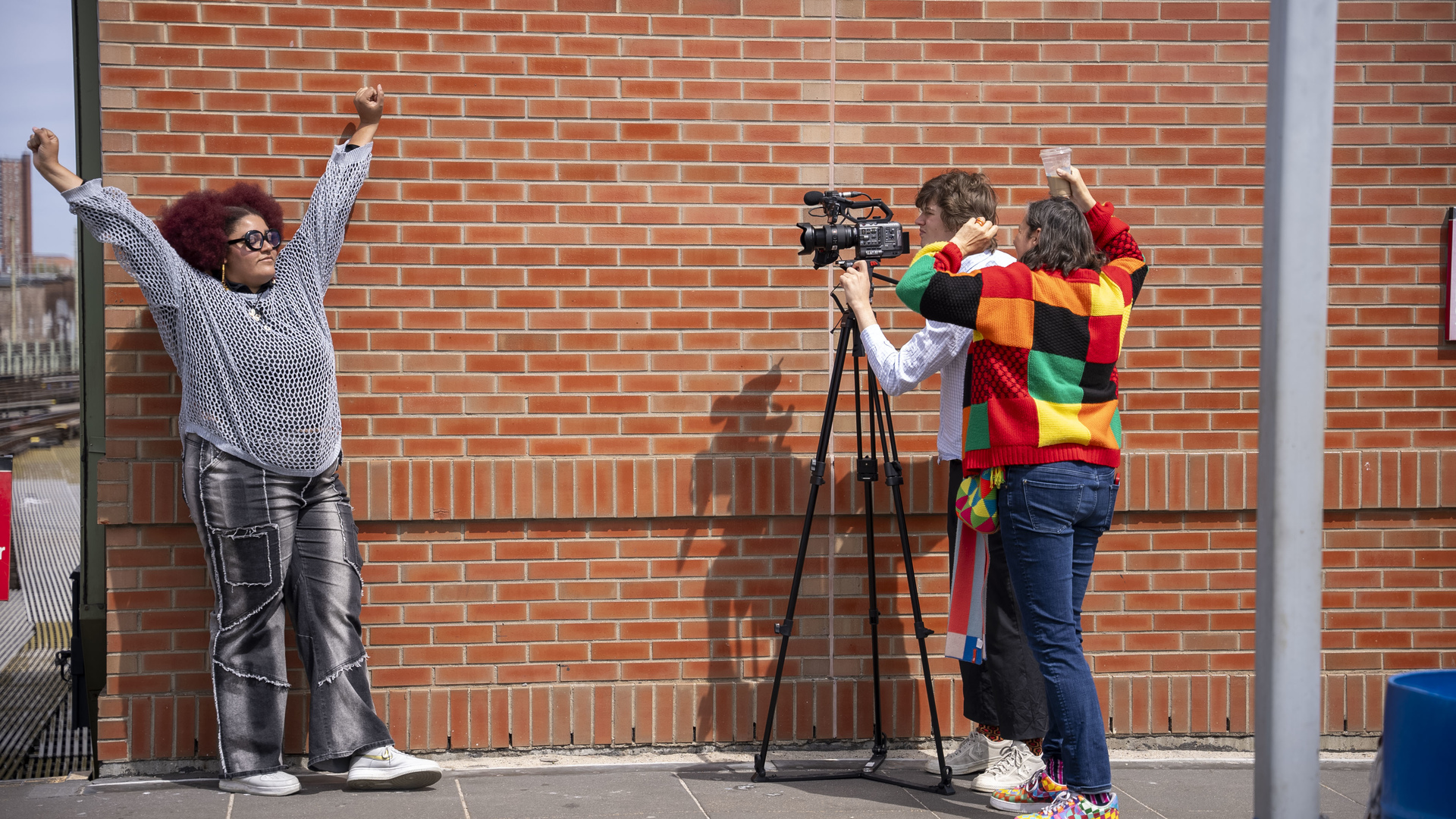
Over three years’ students discover the diversity of film writing, between documentary, fiction and series The programme promotes formal risk-taking and encourages the exploration of areas of hybridisation between genres, while emphasising films in tune with today’s world. Students learn to master the techniques of filming, sound recording, editing and post-production. In addition, they cultivate their vision, critical thinking and ability to express themselves through theory courses.
The first year includes sound and image, archive and lighting practices (outdoor and in the studio). The workshop courses introduce students to film creation with the help of internationally renowned directors and technicians.
Then, students choose between the Film Directing or Editing majors. The sophomore year enables students to deepen their technical knowledge and complete two films: one is a fiction film about local places, the other is a “Grand Atelier” project during which the students get to explore a new land or country in the company of a renowned local filmmaker.
The third year is dedicated to the realization of the graduation project, which includes a film and theory essay. Collaboration between students from both majors continues through the creation of film crews and editing and post-production teams. At the same time, students prepare a portfolio of their work in order get ready for their professional integration.
Direction
See study planStudents who choose the Film Directing major in the second year deepen their technical knowledge (handling complex cameras and multi-channel sound recording) while learning to master the entire creative process. Together with their colleagues in the Editing major, they make two main films: one fiction and one documentary. In the third year, students concentrate on their graduation film and most of the teaching that takes place in the form of personalised tutoring and thematic seminars revolves around their project. The program also includes courses on production, distribution, selection and festivals.
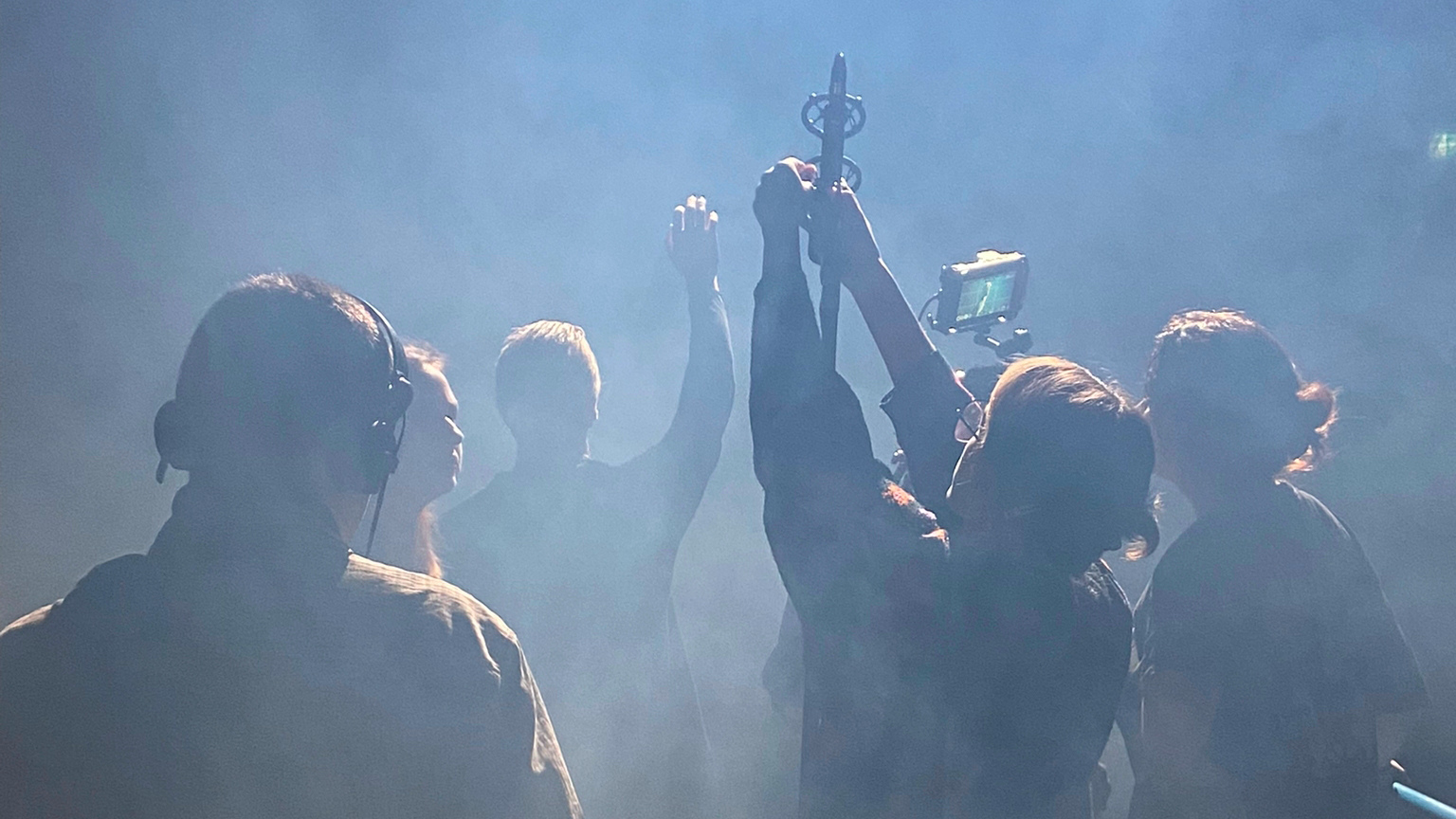
Shooting of the film of Tatiana Culcitchi, student in Cinema Bachelor. Photo by Yves-Christie Kavula
Editing
See study planStudents who choose the Editing major assemble and disassemble films in order to master professional software (Avid Pro Tools). Students practice by editing the main films of their colleagues in the Film Directing major and deal in particular with the challenges of sound editing. In the third year, students consider editing as a creative act in its own right. They deepen their knowledge by exploring different narratives and practicing a wider variety of editing techniques. Moreover, students have the opportunity to familiarise themselves with special effects and graphic design software. During their graduation project, each student works in a team with a student from the Film Directing major to demonstrate their ability to complete the work through editing.
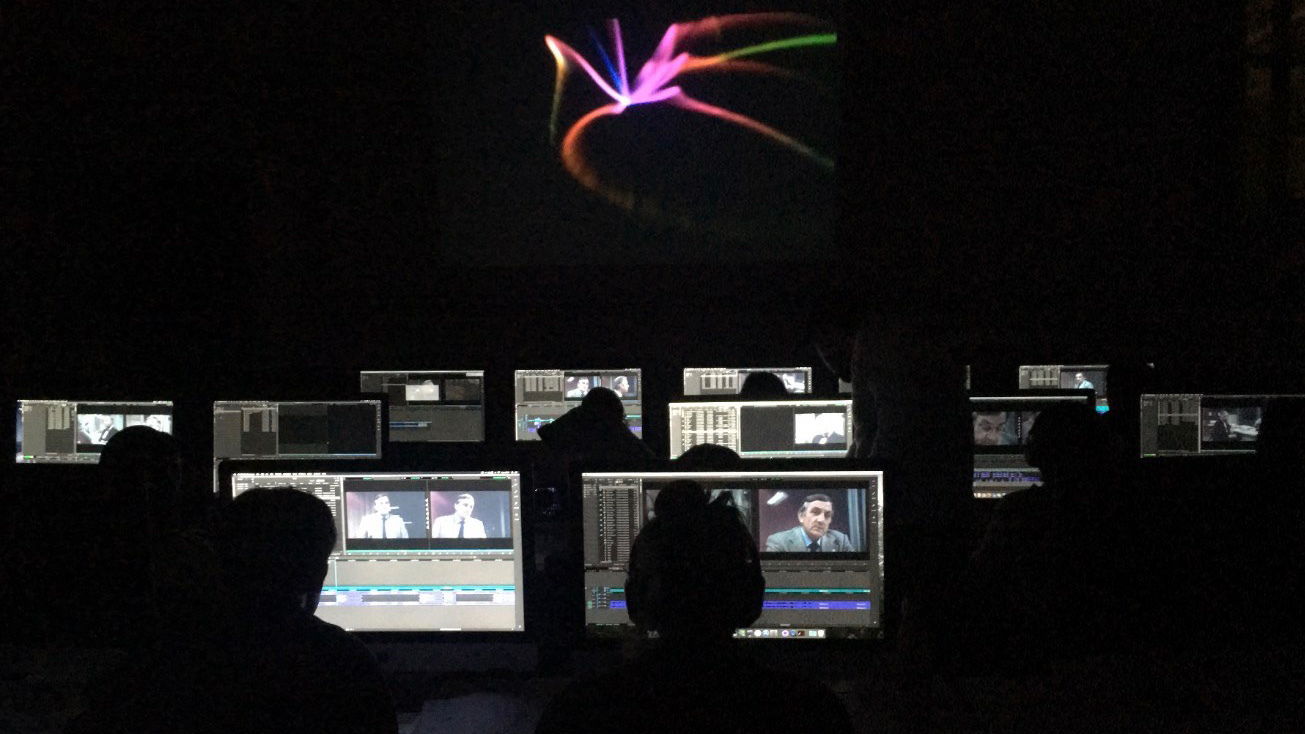
Atelier instable, Pierre Schlesser
Sound
See study planStudents who opt for the Sound major benefit from advanced sound recording training (microphones, recorders, booms, critical listening), while working on conceptual workshops (constructions, layered soundscapes, interactions between direct sound/ambience/music) and developing their knowledge of professional software (Pro Tools). In their third year, the students consider sound as a real tool for reflection and creation. Moreover, in order to develop a practical knowledge of sound, an internship in a professional environment (on a film set or on television) or a personal project are an integral part of the course. During the graduation project, students in the Sound major work on their colleagues’ films in the Directing major in collaboration with those in the Editing major, in order to define the method and sound strategy specific to the film, carry out the sound recording during the shooting, collaborate on the sound editing and carry out the mix.
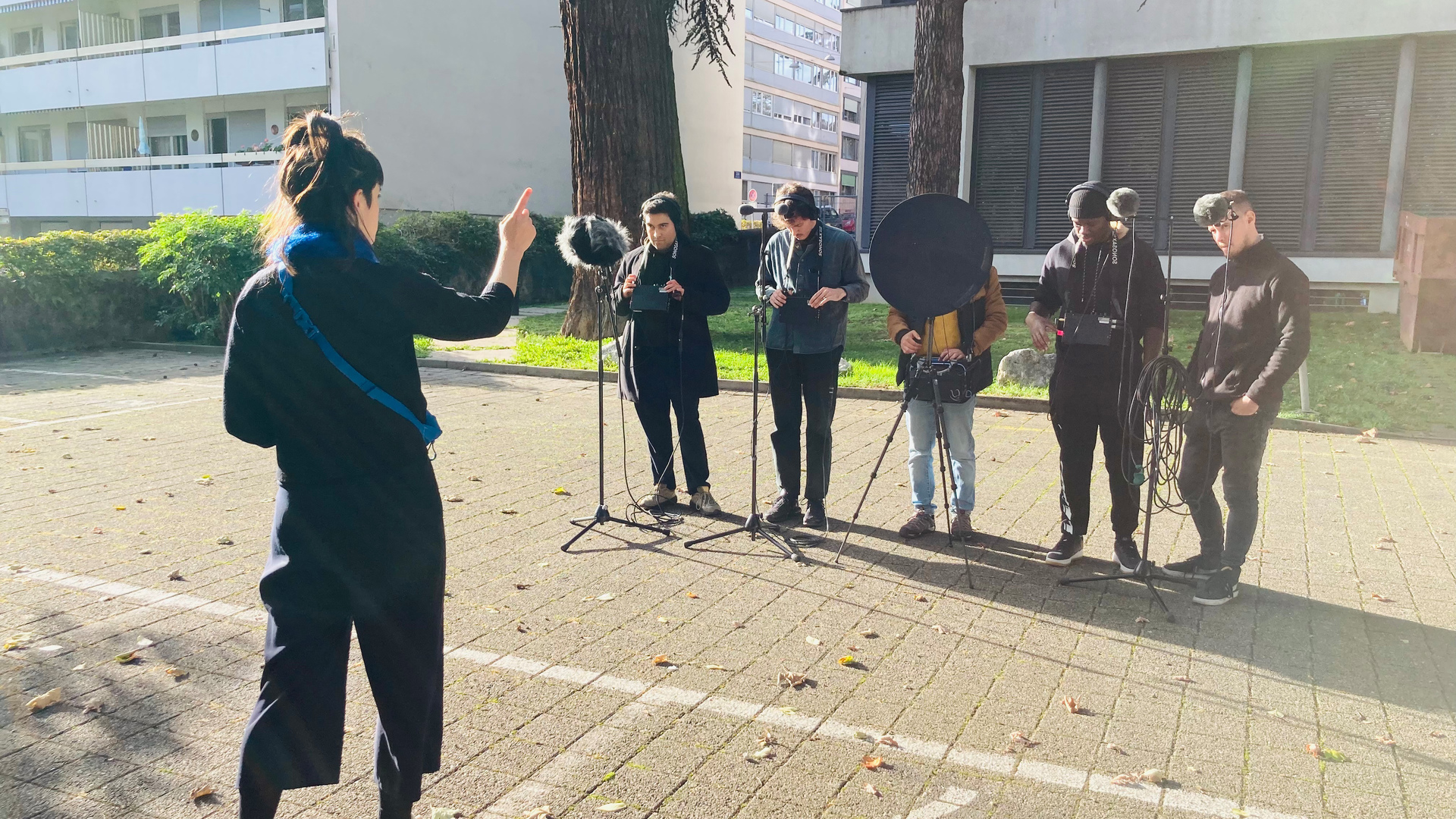
Atelier Field recording, Mélia Roger
Image
See study planThe Image option aims to deepen skills in shooting and the aesthetic design of images. Students participate in artistic and technical workshops (filming with natural light, at night, in a studio with sets and a green screen, color grading, and familiarization with cameras of different sizes and various team configurations). These workshops are led by internationally renowned cinematographers. In addition to theoretical and technical courses, students complete an internship on the set of a feature film or develop a personal artistic project. The practical diploma work will involve overseeing a diploma film from the perspective of image design (aesthetic considerations, camera choices, shooting, and shot breakdown) as well as contributing to image color grading.
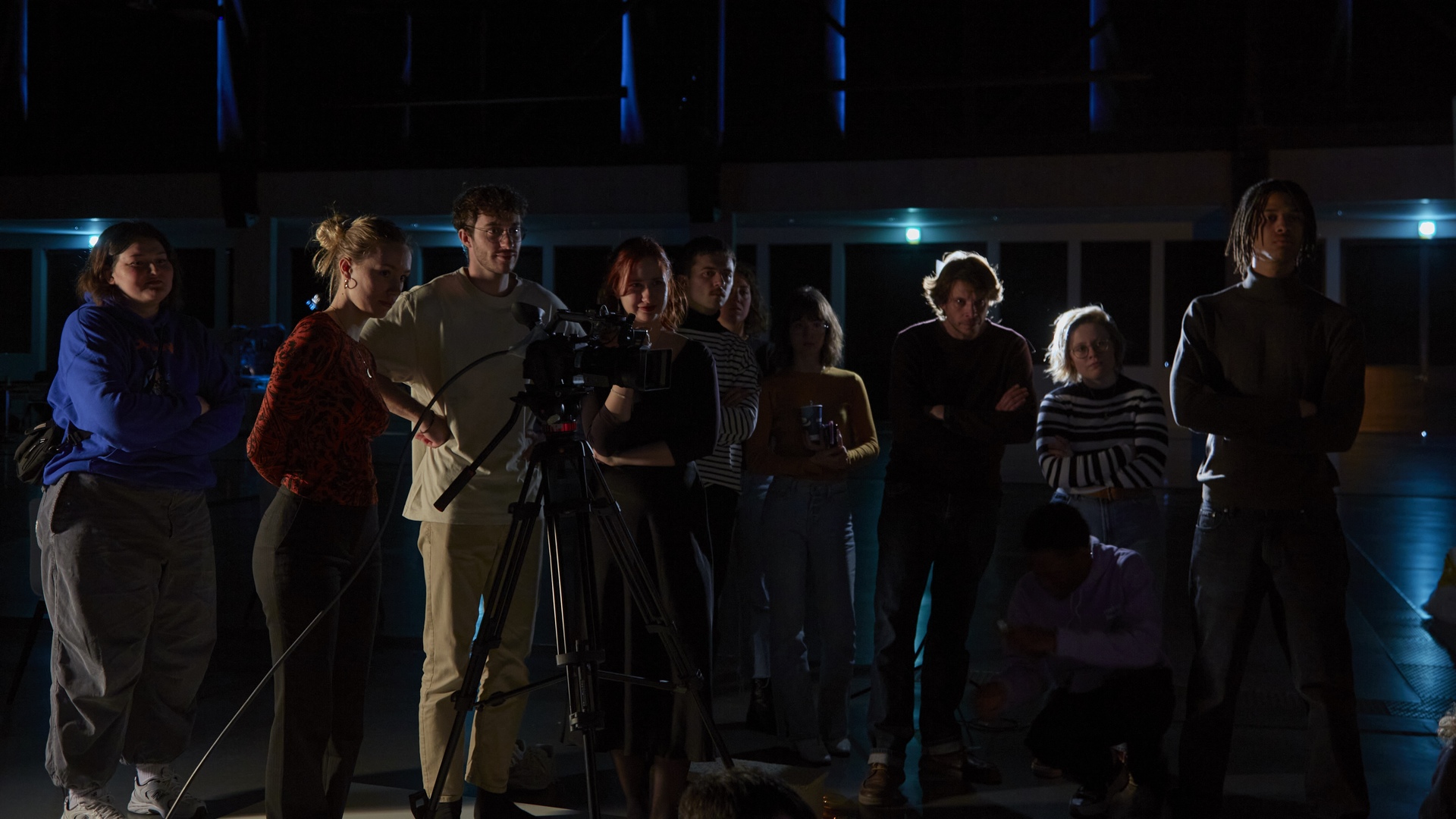
Team
Dean
- Anita Hugi
Associate
- Rafaela Gerhard
Teaching staff
- Bertrand Bacqué
- Basil Da Cunha
- Delphine Jeanneret
- Maryam Goormaghtigh
- Palmyre Badinier
- Vuk Vukmanovic
- Olivier Zuchuat
Assistants
- Antoine Scalese
- Yael Golan
- Alberto Martìn Menacho
Technical and post-production
- Lorin Wüscher
- Mathis Damour
Material store
- Cathy Lopez
- Hakim Mastour
Secretary
- Maeva Mourlan
Lecturers
Sandro Aguilar, Kamal Aljafari, Raed Andoni, Fabrice Arragno, Claire Atherton, Marine Atlan, Tristan Aymon, Palmyre Badinier, Fulvio Balmer-Rebullida, Kenza Barrah, Antoine Barraud, Nicolas Becker, Yaël Bitton, Céline Bozon, Iris Brey, Anne Brouillet, Claire Burger, Patric Chiha, Philippe Ciompi, Faye Corthésy, Ael Dallier Vega, Robin Deriaud, Daniel Deshays, Pauline Doméjan, Claire Doyon, Dina Drukarova, Christine Dory, Farah Clémentine Dramani Issifiou, Raphael Dubach, Alan Dupasquier, Hassen Ferahni, Adrien Fernex, Andreas Fontana, Lilith Grasmug, Alain Gomis, Elie Grappe, Loïc Hobi, Christine Hoffet, Tatiana Huezo, Carlos Ibañez-Diaz, Carmen Jaquier, Gina Keller, Philippe Lacôte, Oliver Laxe, Raphaël Lefèvre, Danielle Lessovitz, Colin Levêque, Mariano Llinas, Valérie Loizeleux, Elena Lopez Rieira, Christine Loriol, Marie Losier, Elina Löwensohn, Eleonore Mallo, Bertrand Mandico, Emmanuel Marre, Claire Mathon, Valentin Merz, Robin Mognetti, Elene Naveriani, Catherine Paillé, Alessandro Passerini, Luc Peter, Christoph Pithon, Caroline Poggi, Isabelle Proust, Nicolas Rabaeus, Thomas Reichlin, Carlos Reygadas, Sophie Reclin, João Pedro Rodrigues, Antoine Russbach, Cyril Schäublin, Pierre Schlesser, Elena Tatti, Patrick Tresch, Theodore Ushev, Andreea Vescan, Jonathan Vinel, Laurent Vanlanthen, Seumboy Vrainom, François Wolf, Rui Xavier, Flavia Zanon, Clélia Zernik
Partner schools
Merz Akademie - Hochschule für Gestaltung Stuttgart, (Germany), Universidad del Cine, (Argentina), Ecole de Recherche Graphique, (Belgium), INSAS, (Belgium), LUCA School of Arts, (Belgium), KASK, HoGent / The Royal Academy of Fine Arts, (Belgium), UQAM, Université du Québec à Montréal, (Canada), Universidad del Desarrollo, (Chile), CAA, China Academy of Art, (China), HKDI, Hong Kong Design Institute, (China), EICTV, Escuela Internacional de Cine e TV - San Antonio de Los Baños, (Cuba), ESAAA - Ecole Supérieur d’Art Annecy Alpes, (France), ESADMM, Ecole Supérieure d’Art et de Design Marseille-Méditerranée, (France), ESBA Nantes Saint Nazaire, Ecole Supérieure des Beaux-Arts, (France), ENSLL, Ecole Nationale Superieure Louis Lumiere, (France), ENSAPC, Ecole Nationale Supérieure d’Arts de Paris Cergy, (France), SHU, Sheffield Hallam University, (Great Britain), ABABO, Accademia di Belle Arti di Bologna, (Italy), Lebanese Academy of Fine Arts, University of Balamand, School of Cinema and Audiovisual Production, (Lebanon), Escuela Nacional de Pintura y Escultura “La Esmeralda”, (Mexico), Instituto Politecnico de Lisboa, Escola Superior de Teatro e Cinema, (Portugal), Lucerne University of Applied Sciences and Arts / Lucerne School of Art and Design, (Switzerland), ZHdK, Zürcher Hochschule der Künste, (Switzerland), SVA, School of Visual Arts New-York, (USA)
Partner institutions
RTS, Swiss Film Prize, GIFF, FIFF, Visions du réel, Internationale Kurzfilmtage Winterthur, Locarno Film Festival, Cinémas du Grütli, Spoutnik, tënk, Filmar, Black Movie